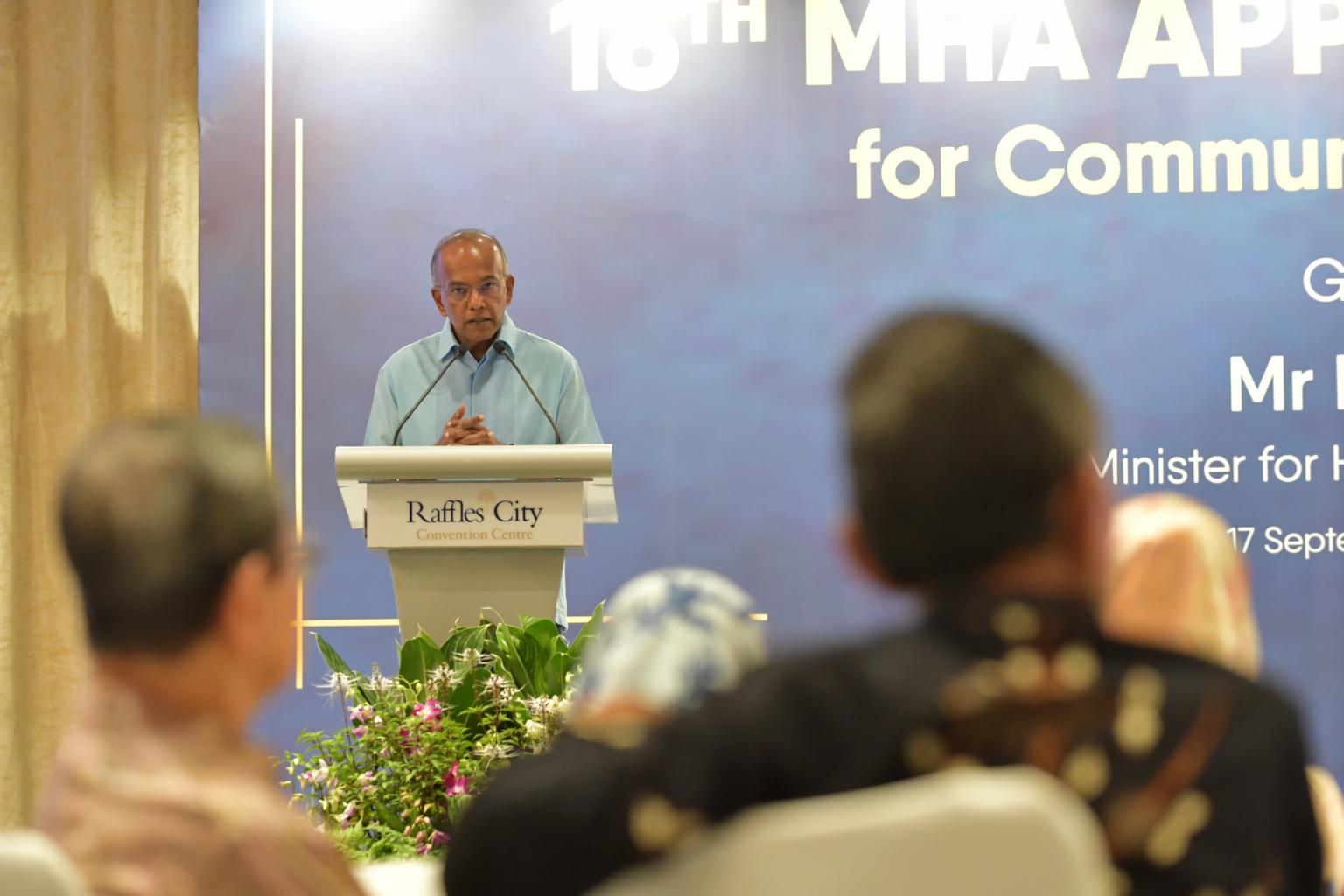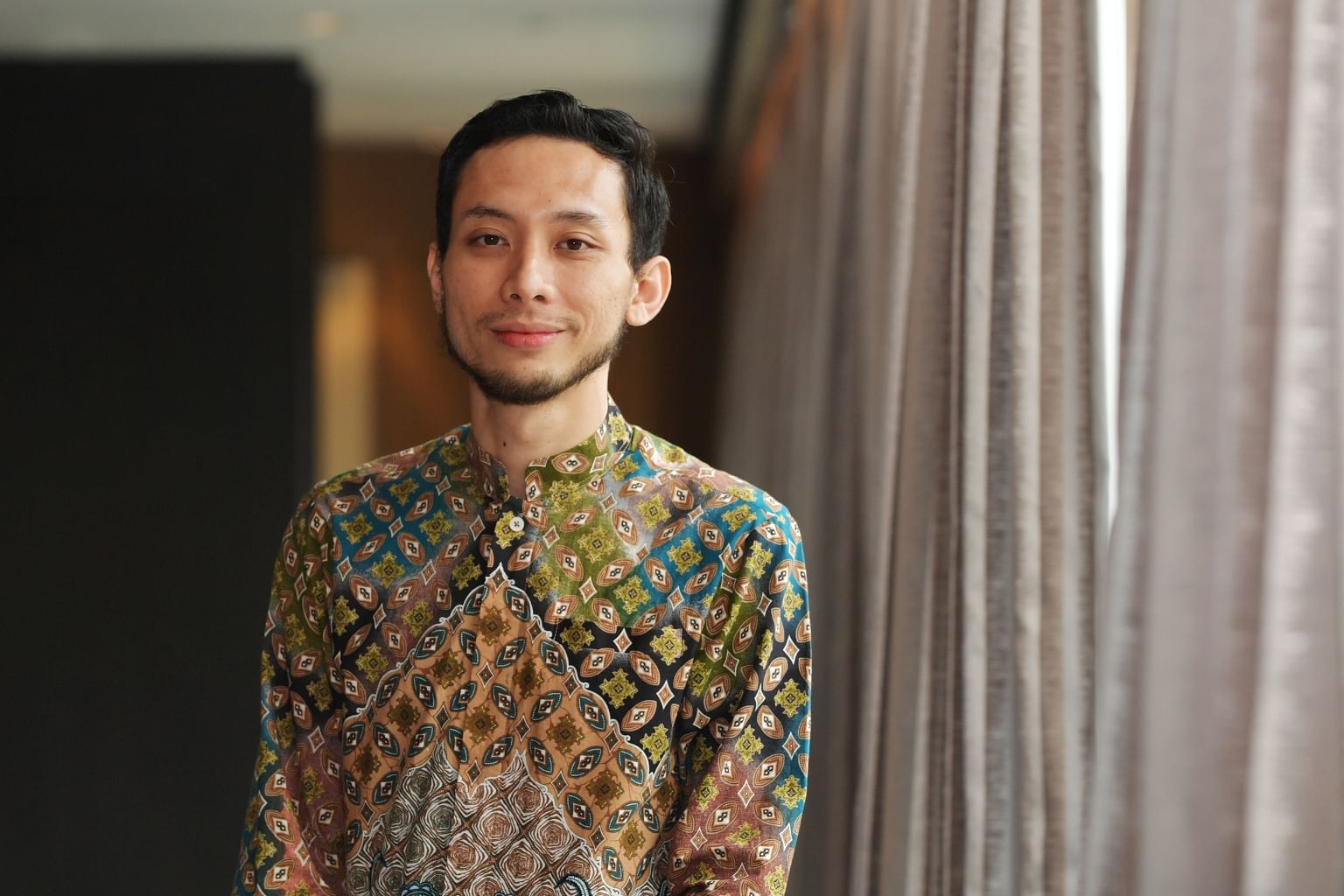85 per cent of ISA detainees have been reintegrated into society: Shanmugam
Sign up now: Get ST's newsletters delivered to your inbox

Law and Home Affairs Minister K. Shanmugam said he expects that the remaining, who were detained more recently, will too be released.
ST PHOTO: ALPHONSUS CHERN
Follow topic:
SINGAPORE - Nearly 85 per cent of those detained under the Internal Security Act, or 78 out of 92 of them, have been released and reintegrated into society since 2002.
Minister for Law and Home Affairs K. Shanmugam said on Saturday that most of the remaining 14 were detained more recently and he expects that they too will be released in due course.
Speaking at an annual Ministry of Home Affairs (MHA) appreciation lunch for community volunteers involved in helping detainees and their families, he said Singapore will continue to face challenges in the fight against terrorism, as radicalisation and violence in the name of religion is likely to grow in the region.
He noted that radical ideologies continue to come out of the Middle East and some people around the world, including South-east Asia, will find them appealing.
To illustrate what is happening in the region, he cited a survey done last year that showed one in four students in Indonesia believes suicide bombing in the name of religion is jihad.
He also highlighted recent studies that state 28 per cent of Malaysians were receptive to using violence to achieve religious goals and 34 per cent believe religious texts should be the basis of all policy and law.
Mr Shanmugam said: "I am not suggesting that all of this is due to radicalisation, neither am I passing value judgment on what Malaysians believe. I am simply stating a fact, which will have consequences.
"For us, this has a direct impact in terms of security, given the hundreds of thousands of Malaysians who cross the border every day and many others from the region who will come when travel resumes."
He noted that Singapore's own population could be influenced because of the Internet and when they meet others who hold radical beliefs.
"How will that impact the multi-religious fabric of our society, which we are carefully looking after? These are big challenges which the Government alone cannot solve," he added.
Addressing the volunteers in the audience, including those from the Religious Rehabilitation Group (RRG) and Inter-Agency Aftercare Group (ACG), the minister said their role will continue to be extremely important in tackling the threat of terrorism.
The RRG brings together Islamic scholars who voluntarily assist in the religious counselling of radicalised individuals, while the ACG provides assistance to detainees' families.
Mr Shanmugam lauded their efforts, saying their contributions allowed Singapore to achieve a high rehabilitation rate for detainees.
"Around the world, and even in the region, rehabilitation rates are poor. The detainees, once released, go back and do bad things. It is different in Singapore, because of RRG and ACG," he said.

Ustaz Ahmad Helmi Mohd Hasbi, 35, is one of those recognised at the MHA event.
The religious teacher has been volunteering at RRG as a counsellor since 2015.
In his experience counselling detainees, he said some had been radicalised online as they lacked digital literacy to differentiate truths from untruths.
"The Internet is like a knife in that it is both a tool and a weapon. It can be very helpful in allowing people to spread good messages but also dangerous when it comes to radical content," he said.
As each case he deals with is different, he said he listens to what the detainee had gone through to understand what led them down the path of radicalisation.
It can be challenging, however, when he works with detainees who are older than him as they tend to feel they know better.
"The key is in showing them respect even as I try to help them see that they have misunderstood certain concepts," said Ustaz Helmi.
Earlier this year, two self-radicalised Singaporeans were released from detention under the Internal Security Act (ISA) after being assessed as no longer posing a security threat.
One was Mr Hazim Syahmi Mahfoot, 31, who was released in January this year after being detained under ISA in January 2019.
He was convinced by a friend that he should undertake armed violence against the perceived enemies of his religion.
Mr Hazim had believed that all Muslims are duty-bound to travel to conflict zones such as Palestine, Syria and Myanmar to fight non-Muslims there.
Ms Ruqayyah Ramli, 35, was released in February this year. Her detention under ISA started in April 2021.
The former religious teacher had been radicalised by her husband and supported his intention to travel to Syria to fight for militant group Islamic State in Iraq and Syria (ISIS).
She had believed that ISIS's violent actions are legitimate, as they are defending oppressed Muslims in Syria.
Both Mr Hazim and Ms Ruqayyah were released under a suspension direction, which can be revoked if an individual does not comply with conditions such as not travelling out of Singapore or accessing the Internet without approval from the Internal Security Department director.

